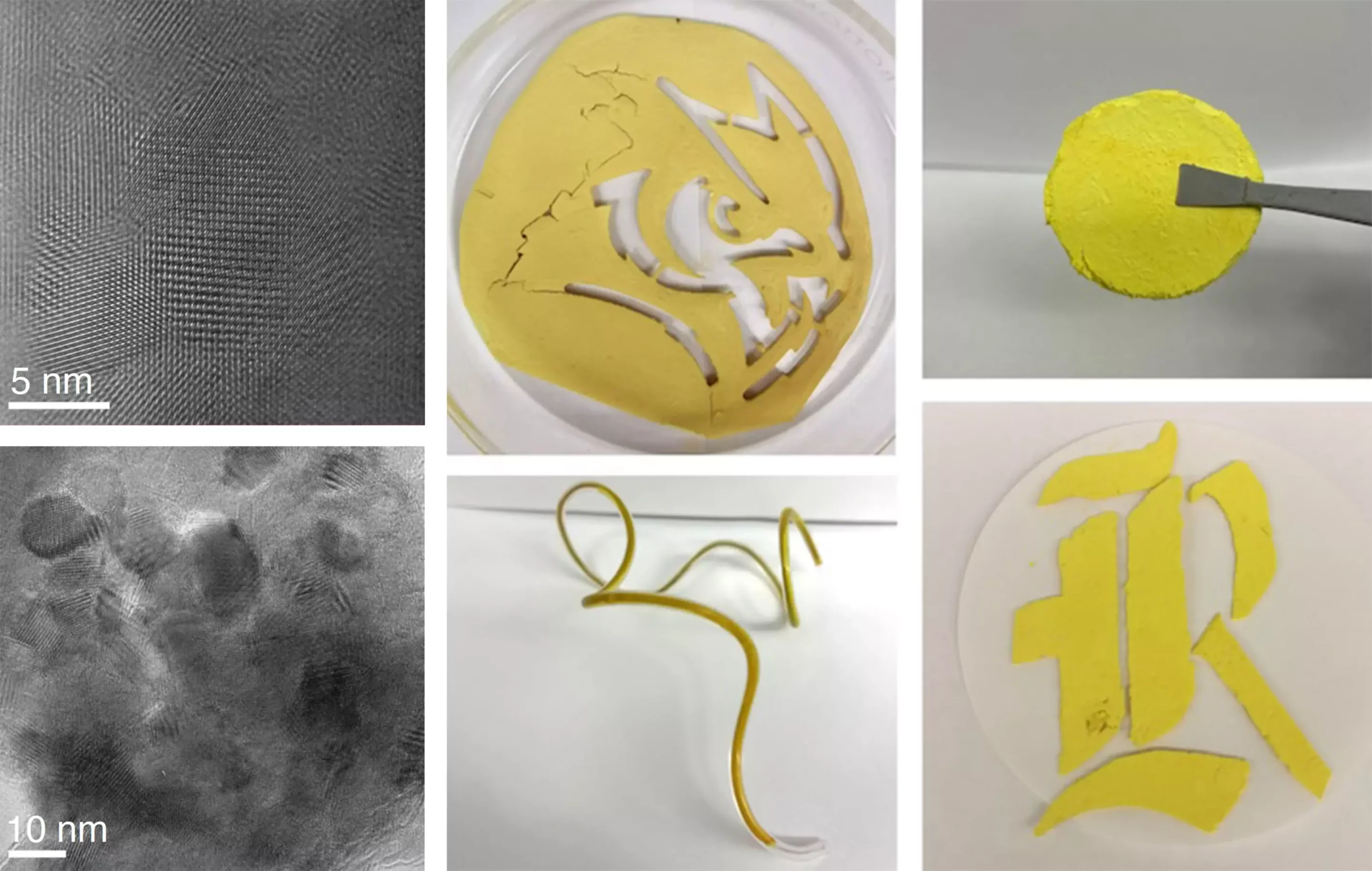Recent advancements at Rice University highlight a promising shift in the field of material synthesis, particularly regarding covalent organic frameworks (COFs). These remarkable materials possess unique properties that make them ideal candidates for tackling pressing environmental issues such as gas trapping, water filtration, and the enhancement of chemical reactions. As society grapples with significant challenges, including pollution and the need for efficient energy storage, the potential applications for COFs are becoming increasingly vital, specifically in the decontamination of persistent pollutants, commonly referred to as “forever chemicals,” such as PFAS (per- and polyfluoroalkyl substances).
The team, led by chemical engineer Rafael Verduzco, has made strides in synthesizing high-quality COFs through a low-cost method that emphasizes rapid production. Their findings, published in ACS Applied Materials and Interfaces, underline a crucial intersection between innovative engineering and environmental sustainability. The research provides valuable insights into optimizing COF production to unlock their full potential in addressing critical issues like water safety and atmospheric pollution.
At the core of this advancement is a unique synthesis technique utilizing a multiflow microreactor. This system allows for a continuous stream of reactants, in stark contrast to traditional batch methods where all ingredients are combined simultaneously in a large container. According to Safiya Khalil, the lead author on the study, this miniaturized production system resembles a lab bench-scale factory where COFs can be produced efficiently and consistently.
The implications of this method are profound. By mimicking a cookie-making process, where individual orders are freshly baked rather than prepared all at once, researchers can control each step of the synthesis, resulting in high-quality COFs with greater precision. This contrasts sharply with earlier attempts at using flow reactor synthesis, marking a notable evolution in COF production techniques.
A standout aspect of this new synthesis approach is its ability to produce COFs with superior crystallinity. The intricate design of these materials—characterized by their porous, sponge-like structures and large surface area—offers opportunities for applications that extend beyond environmental remediation. COFs show promise in diverse fields such as electronics, where they can function as semiconductors, or in healthcare by facilitating targeted drug delivery systems.
Highlighting the efficiency of the newly synthesized COFs, the researchers demonstrated their effectiveness in breaking down perfluorooctanoic acid (PFOA)—a harmful PFAS compound known to pose severe health risks. The process of photocatalytic degradation, activated by light and occurring at room temperature, further emphasizes the practical advantages these materials bring to pollutant management. This development not only enhances the prospects for pollution control but also illustrates how COFs can contribute to safer technological solutions.
Despite the transformative potential of COFs, the ongoing challenge of traditional production methods—including high operational temperatures, pressures, and toxic solvents—has significantly hindered their widespread adoption. The new flow synthesis technique counters these limitations, streamlining production while promoting a cleaner, more sustainable approach. The researchers’ method not only improves the efficiency of COF manufacturing but also allows for a diverse array of macroscopic formats, paving the way for extensive experimentation and innovation in new formulations.
The team’s efforts have the potential to revolutionize how materials are developed and utilized in various industries. By demonstrating a cost-effective and efficient production method, they hope to ultimately accelerate the discovery and application of new COF technologies capable of filtering pollutants from water sources and addressing energy storage solutions more effectively.
The innovative work being conducted by the Rice University team heralds a new era in the production and application of covalent organic frameworks. Their cutting-edge synthesis method not only addresses critical environmental challenges but also inspires a more sustainable approach to material science. As we navigate the complexities of modern pollution and energy issues, advancements like these could prove instrumental in facilitating a cleaner, healthier world. The ongoing exploration of COFs stands as a testament to the intersection of scientific inquiry and practical application, promising a future where such materials play a critical role in environmental sustainability and technological advancement.


Leave a Reply